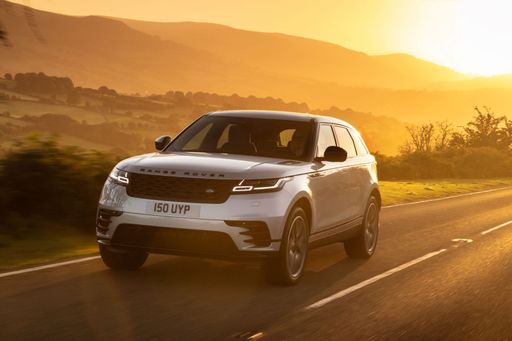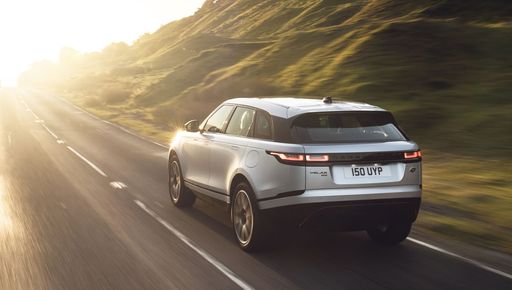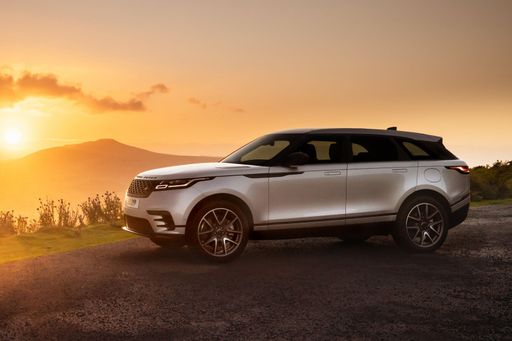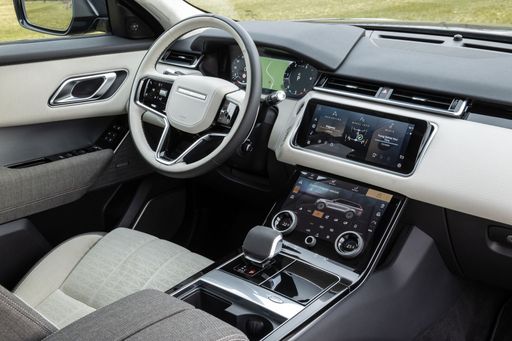VW Tiguan vs Land Rover Range Rover Velar - Differences and prices compared
Compare performance (272 HP vs 404 HP), boot space and price (33300 £ vs 61900 £ ) at a glance. Find out which car is the better choice for you – VW Tiguan or Land Rover Range Rover Velar?
Costs and Efficiency:
Price and efficiency are often the first things buyers look at. Here it becomes clear which model has the long-term edge – whether at the pump, the plug, or in purchase price.
VW Tiguan has a clearly advantage in terms of price – it starts at 33300 £ , while the Land Rover Range Rover Velar costs 61900 £ . That’s a price difference of around 28585 £.
Fuel consumption also shows a difference: VW Tiguan manages with 1.40 L and is therefore significantly more efficient than the Land Rover Range Rover Velar with 4.80 L. The difference is about 3.40 L per 100 km.
As for electric range, the VW Tiguan performs decisively better – achieving up to 126 km, about 63 km more than the Land Rover Range Rover Velar.
Engine and Performance:
Power, torque and acceleration say a lot about how a car feels on the road. This is where you see which model delivers more driving dynamics.
When it comes to engine power, the Land Rover Range Rover Velar has a evident edge – offering 404 HP compared to 272 HP. That’s roughly 132 HP more horsepower.
In acceleration from 0 to 100 km/h, the Land Rover Range Rover Velar is slight quicker – completing the sprint in 5.40 s, while the VW Tiguan takes 5.90 s. That’s about 0.50 s faster.
In terms of top speed, the Land Rover Range Rover Velar performs minimal better – reaching 250 km/h, while the VW Tiguan tops out at 242 km/h. The difference is around 8 km/h.
There’s also a difference in torque: Land Rover Range Rover Velar pulls evident stronger with 650 Nm compared to 400 Nm. That’s about 250 Nm difference.
Space and Everyday Use:
Beyond pure performance, interior space and usability matter most in daily life. This is where you see which car is more practical and versatile.
Both vehicles offer seating for 5 people.
In curb weight, VW Tiguan is evident lighter – 1599 kg compared to 2003 kg. The difference is around 404 kg.
In terms of boot space, the VW Tiguan offers to a small extent more room – 652 L compared to 552 L. That’s a difference of about 100 L.
In maximum load capacity, the VW Tiguan performs a bit better – up to 1650 L, which is about 292 L more than the Land Rover Range Rover Velar.
When it comes to payload, Land Rover Range Rover Velar slight takes the win – 587 kg compared to 533 kg. That’s a difference of about 54 kg.
Who comes out on top?
Overall, the VW Tiguan shows itself to be leaves the rival little chance and secures the title of DriveDuel Champion.
It convinces with the more balanced overall package and proves to be the more versatile choice for everyday use.

VW Tiguan
Costs and Consumption
View detailed analysis
Engine and Performance
View detailed analysis
Dimensions and Body
View detailed analysis
VW Tiguan
The VW Tiguan blends sensible family practicality with a dash of German polish, delivering a calm, reassuring ride and a cabin that never feels like an afterthought. For buyers who want an SUV that’s easy to live with yet still nicely dressed, the Tiguan is the grown‑up choice that keeps a cheeky wink in reserve.
details





Land Rover Range Rover Velar
The Range Rover Velar marries sleek, pared-back styling with genuine off-road poise, so it looks at home in the city yet won’t flinch at rougher roads. Inside, a luxurious, tech-forward cabin pampers occupants while keeping the driving experience confidently in command — and yes, it somehow makes an SUV feel undeniably chic.
details



Costs and Consumption |
|
|---|---|
|
Price
33300 - 51900 £
|
Price
61900 - 87400 £
|
|
Consumption L/100km
1.4 - 8.4 L
|
Consumption L/100km
4.8 - 10.2 L
|
|
Consumption kWh/100km
-
|
Consumption kWh/100km
-
|
|
Electric Range
118 - 126 km
|
Electric Range
63 km
|
|
Battery Capacity
19.70 kWh
|
Battery Capacity
15.40 kWh
|
|
co2
32 - 190 g/km
|
co2
110 - 232 g/km
|
|
Fuel tank capacity
45 - 58 L
|
Fuel tank capacity
62 - 83 L
|
Dimensions and Body |
|
|---|---|
|
Body Type
SUV
|
Body Type
SUV
|
|
Seats
5
|
Seats
5
|
|
Doors
5
|
Doors
5
|
|
Curb weight
1599 - 1890 kg
|
Curb weight
2003 - 2280 kg
|
|
Trunk capacity
490 - 652 L
|
Trunk capacity
503 - 552 L
|
|
Length
4539 mm
|
Length
4797 mm
|
|
Width
1842 - 1859 mm
|
Width
1933 mm
|
|
Height
1656 - 1658 mm
|
Height
1657 - 1665 mm
|
|
Max trunk capacity
1486 - 1650 L
|
Max trunk capacity
1335 - 1358 L
|
|
Payload
460 - 533 kg
|
Payload
460 - 587 kg
|
Engine and Performance |
|
|---|---|
|
Engine Type
Petrol, Petrol MHEV, Diesel, Plugin Hybrid
|
Engine Type
Petrol MHEV, Plugin Hybrid, Diesel MHEV
|
|
Transmission
Automatic
|
Transmission
Automatic
|
|
Transmission Detail
Dual-Clutch Automatic
|
Transmission Detail
Automatic Gearbox
|
|
Drive Type
All-Wheel Drive, Front-Wheel Drive
|
Drive Type
All-Wheel Drive
|
|
Power HP
130 - 272 HP
|
Power HP
204 - 404 HP
|
|
Acceleration 0-100km/h
5.9 - 10.6 s
|
Acceleration 0-100km/h
5.4 - 8.3 s
|
|
Max Speed
210 - 242 km/h
|
Max Speed
209 - 250 km/h
|
|
Torque
220 - 400 Nm
|
Torque
430 - 650 Nm
|
|
Number of Cylinders
4
|
Number of Cylinders
4 - 6
|
|
Power kW
96 - 200 kW
|
Power kW
150 - 297 kW
|
|
Engine capacity
1498 - 1984 cm3
|
Engine capacity
1997 - 2997 cm3
|
General |
|
|---|---|
|
Model Year
2024 - 2025
|
Model Year
2025
|
|
CO2 Efficiency Class
G, D, E, F, B
|
CO2 Efficiency Class
G, C
|
|
Brand
VW
|
Brand
Land Rover
|
What drivetrain options does the VW Tiguan have?
The VW Tiguan is offered with All-Wheel Drive or Front-Wheel Drive.




